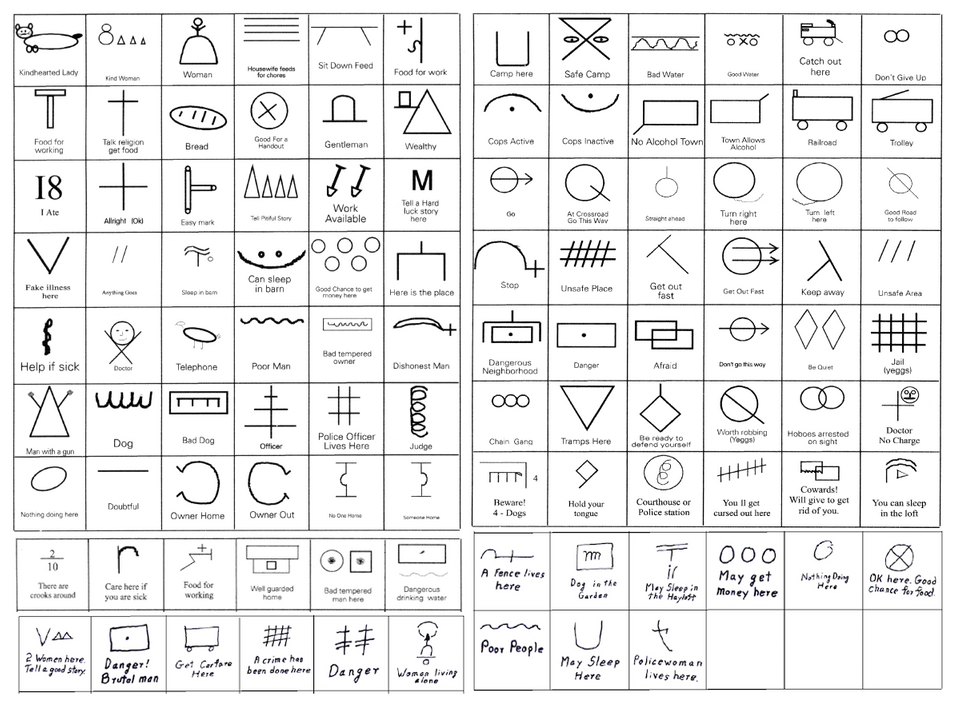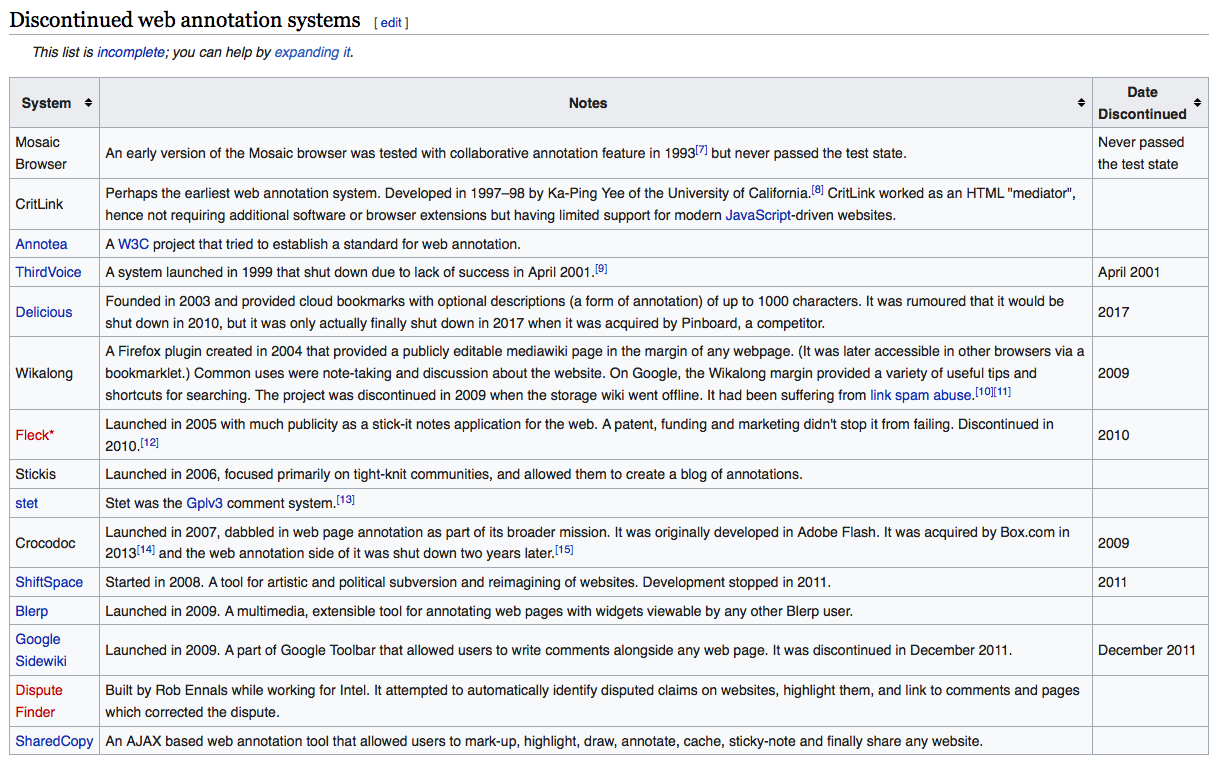Does web annotation like diigo or a.nnotate have a coherent future? Or will it always be a fragmented set of standards, apps, and users using private forums to exchange information?
Hobo culture of the late 19th and early 20th century United States found a common language for marking up the public domain - the hoboglyph.
These were not spray painted tags that permanently defaced walls and buildings. The symbols were penned in chalk or coal, reflecting both the impermanence of the sitrep as well as a measure of respect for the general public.
And this reflected a broader moral code and pragmatism of the hobo. Although the term 'hobo' is often used as a pejorative term, the social network of itinerant workers using rail to transport themselves to employment opportunities was in fact rich with moral code, standards, and norms. For example, the hobo code:
Decide your own life, don't let another person run or rule you.
When in town, always respect the local law and officials, and try to be a gentleman at all times.
Don't take advantage of someone who is in a vulnerable situation, locals or other hobos.
Always try to find work, even if temporary, and always seek out jobs nobody wants. By doing so you not only help a business along, but ensure employment should you return to that town again.
When no employment is available, make your own work by using your added talents at crafts.
Do not allow yourself to become a stupid drunk and set a bad example for locals' treatment of other hobos.
When jungling in town, respect handouts, do not wear them out, another hobo will be coming along who will need them as badly, if not worse than you.
Always respect nature, do not leave garbage where you are jungling.
If in a community jungle, always pitch in and help.
Try to stay clean, and boil up wherever possible.
When traveling, ride your train respectfully, take no personal chances, cause no problems with the operating crew or host railroad, act like an extra crew member.
Do not cause problems in a train yard, another hobo will be coming along who will need passage through that yard.
Do not allow other hobos to molest children, expose all molesters to authorities, they are the worst garbage to infest any society.
Help all runaway children, and try to induce them to return home.
Help your fellow hobos whenever and wherever needed, you may need their help someday.
If present at a hobo court and you have testimony, give it. Whether for or against the accused, your voice counts!
Fast forward to web annotation. Is it the modern hoboglyph? There's plenty of examples of attempted - and failed - apps that would bring an annotated web experience to users, ranging from the academic to those looking to create a public or even subversive forum, like ThirdVoice or ShiftSpace:
The Web Annotation Working Group manages technical and architectural standards for annotation.
However, is there a moral code and unifying purpose that can guide the 'what' of online annotation, versus the 'how'? And could that ever be used by a purposeful but transient set of browsers who don't remain in a single, limited web sphere, but instead travel across the web with a unified purpose and objective?

